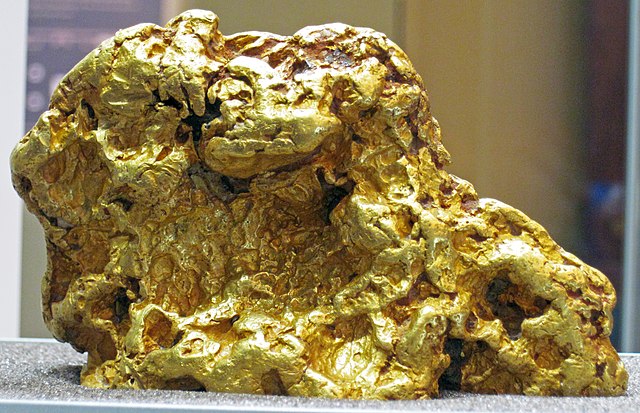Discover the Surprising Mineral Properties of Gold Today
Gold has been prized for its beauty and value for thousands of years, but did you know it also has some surprising mineral properties? In this article, we explore some of the lesser-known characteristics of this precious metal.

What is Gold?
Gold is a precious metal that has captured the attention of humans for thousands of years. It is a chemical element with the symbol Au, and it is one of the few metals that is not silver or grey in color. Instead, it has a distinctive, warm, yellow shine that has made it popular for use in jewelry and other decorative items. But gold is more than just a pretty metal. It also has some surprising mineral properties that make it useful in a variety of other applications. For example, gold is an excellent conductor of electricity, which makes it ideal for use in electronics and other high-tech devices. It is also highly resistant to corrosion and tarnishing, which means it can be used in a wide range of industrial applications without degrading over time. Additionally, gold has been shown to have anti-inflammatory properties, which could make it useful in medicine.
The Chemical Properties of Gold
| Property | Description |
|---|---|
| Atomic number | 79 |
| Atomic symbol | Au |
| Atomic weight | 196.96657 |
| State at room temperature | Solid |
| Melting point | 1,064°C |
| Boiling point | 2,700°C |
| Density | 19.3 g/cm³ |
| Color | Yellow |
| Electronegativity | 2.54 |
| Electron configuration | [Xe] 4f14 5d10 6s1 |
| Oxidation states | +1, +2, +3, +4, +5 |
| Common isotopes | Au-197, Au-198, Au-199, Au-200 |
Physical Characteristics of Gold
Gold is a fascinating mineral with unique physical properties that make it highly valued in various industries. One of the most distinctive characteristics of gold is its color, which is a bright, lustrous yellow. This color is due to the fact that gold reflects almost all of the light that hits it, making it appear yellow to the human eye.
Another important physical property of gold is its density, which is much higher than most other metals. This means that gold is very heavy, which is why it has been used as a currency for thousands of years. In fact, one of the most famous units of weight, the "troy ounce," is named after the city of Troy, which was a major center of gold trade in ancient times.
Gold is also known for its malleability and ductility, which means that it can be easily shaped and formed into various objects. This property has made gold a popular material for jewelry and other decorative items.
Finally, gold is a very good conductor of electricity and heat, which makes it useful in a variety of technological applications. For example, gold is often used in the production of electronic devices, such as computer chips and sensors.


The Value of Gold in Economics
Gold has been a symbol of wealth and prosperity for centuries. But what makes this mineral so valuable in economics? In this article, we will discover the surprising properties of gold that make it a sought-after commodity in the global market.
Firstly, gold is a scarce resource. It is estimated that all the gold extracted from the earth would only fill three Olympic-sized swimming pools. This scarcity gives gold its inherent value. Secondly, gold is indestructible. Unlike other metals, gold does not corrode or tarnish, making it an excellent store of value.
Thirdly, gold is a diversification tool. Investors often buy gold as a hedge against inflation or market volatility. In times of economic uncertainty, gold tends to hold its value or even increase in price, providing a buffer to an investor's portfolio.
Lastly, gold has global appeal. It is widely traded in markets across the world and is accepted as a form of payment in many countries. Central banks hold gold as part of their reserves, further emphasizing its importance in the global economy.
Gold IRA: Should You Open One To Save For Retirement?

